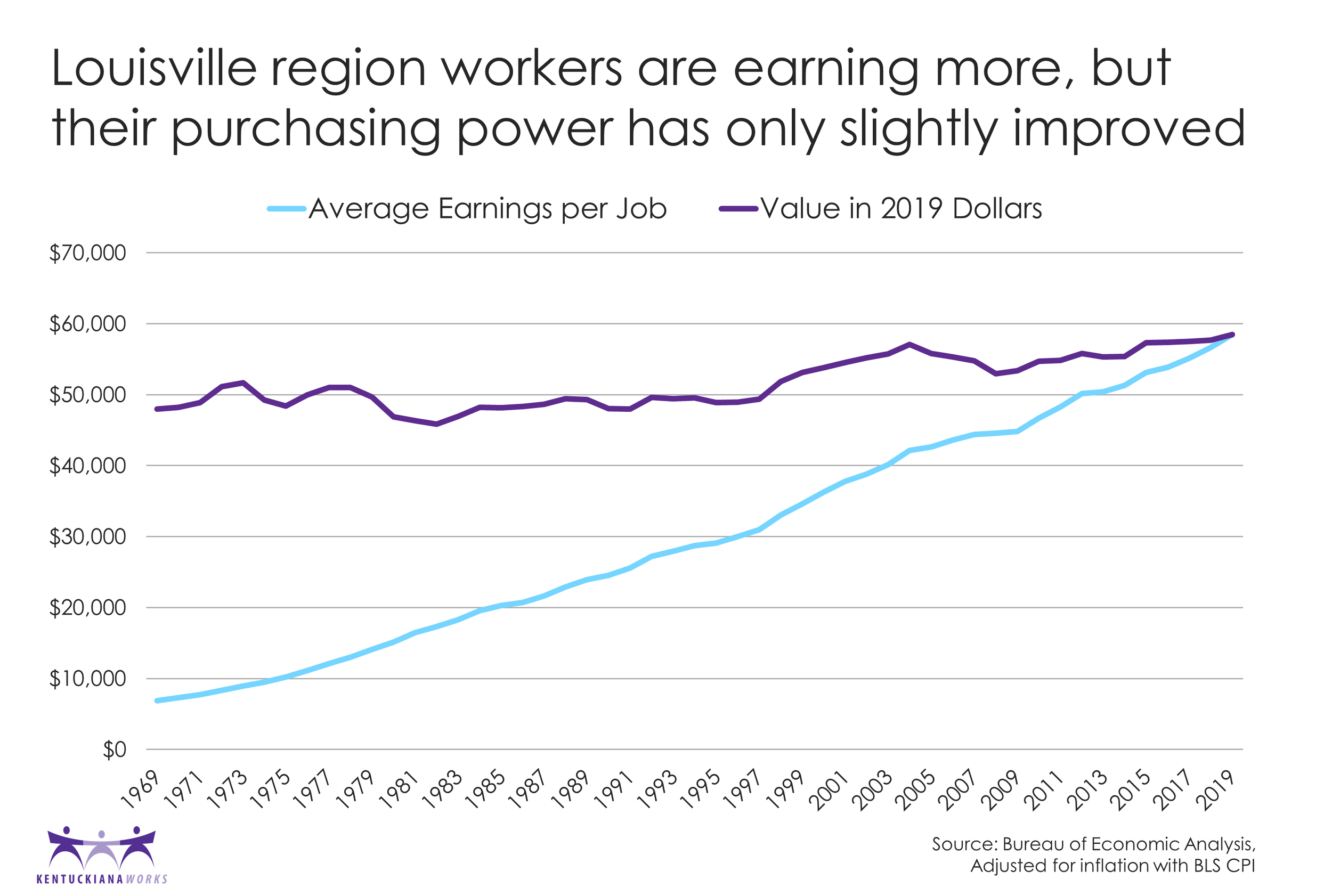Redesigned Jobs for Reduced Turnover and Resilient Workers
Earlier this year, Sarah Ehresman profiled the typical Louisville resident working in frontline, essential roles. Her post showed how, even though these workers have experienced some level of job security during the COVID-19 crisis, many of them are shouldering exposure risk for low compensation. As of April 2020, nearly half of the area’s frontline workforce were employed in essential industries where the median wage fell below the median for the Louisville/Jefferson County MSA.
Even before the pandemic and subsequent economic slowdown, low-wage workers in Louisville and almost all U.S. counties had trouble covering rent. As the chart above shows, even though Louisville workers are earning more, average wages have only slightly risen after accounting for increases in the cost of living.
Wage stagnation, however, does not tell the full story of households struggling to fully participate in the local economy. Unpredictable scheduling keeps a parent from attending their children’s activities and having to hold down multiple jobs reduces a person’s ability to make civic contributions. Workers in low-wage roles dignify our region with services necessary to encourage social distancing and otherwise maintain a healthy community. If the Louisville region needs people to perform these jobs, these jobs need to be designed with a whole person in mind.
Of course, we realize that workers aren’t the only ones facing workforce challenges. KentuckianaWorks has heard from several local employers struggling to hire and retain workers in key roles. Locally, quarterly turnover rates average about 10 percent across industries. Whether the turnover is voluntary or involuntary, it costs the employer. An investment in hiring and training practices that promote employee engagement and retention seems to be the smart move for companies looking to sharpen their competitive advantage.
Luckily, there is evidence that the struggles experienced by workers and employers do not have to pull against one another’s interests. In work made possible by a grant from the National Fund for Workforce Solutions, KentuckianaWorks will investigate ways to redesign existing jobs that work for local employers as well as support worker resilience.
Over the next several months, we will use this page to share promising practices for rethinking job training and recasting frontline roles. In the meantime, if you are a company leader interested in exploring job redesign resources that can reduce your turnover and training costs, we invite you to partner with us on this project to build shared expertise on workforce practices that strengthen our community.

